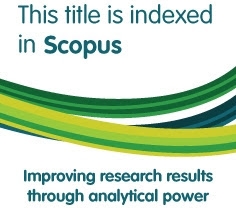The Politic of Salt, not the Politics of Lipstick: Mohammad Hatta on Islam and Nationalism
Abstract
This article will try to show that Hatta was consistently a religious nationalist, but one who also rejected the idea of an Islamic state. Born in a devout Muslim family, Hatta grew and had always been a devout Muslim in his entire life. But his being a devout Muslim had never been a problem for him to be an astute proponent of Indonesian nationalism. If anything, it even encouraged his nationalist stand. When Indonesia's independence was still in its early stage of preparation in the 1940s, he made it clear that he accepted Pancasila as the basis of the future state, particularly when the "Belief in God" was finally put as the first principle of this state's basis.
Full Text:
PDFDOI: https://doi.org/10.15408/sdi.v9i2.667
Refbacks
- There are currently no refbacks.

All publication by Studia Islamika are licensed under a Creative Commons Attribution-NonCommercial 4.0 International License.
Studia Islamika, ISSN: 0215-0492, e-ISSN: 2355-6145
View My Stats
